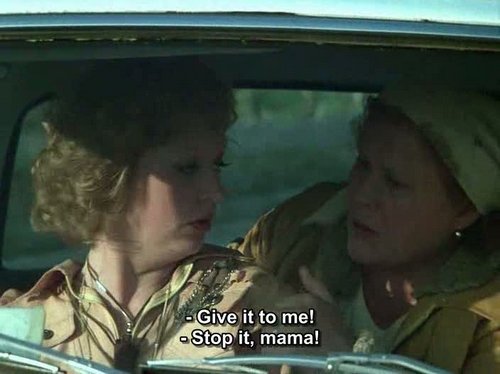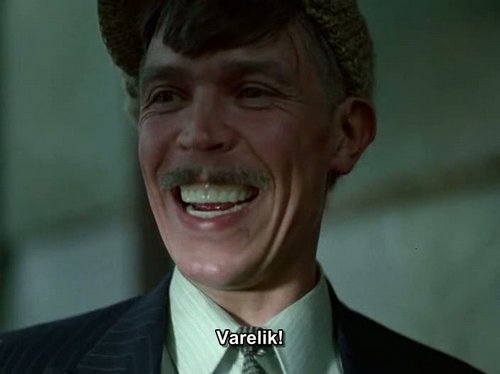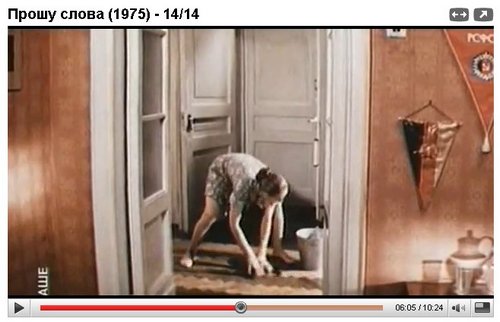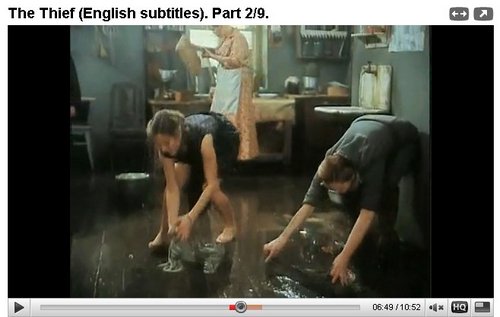Rodnya isn’t turning out to be very good. We’ve watched two thirds of it. It still has a half hour to redeem itself, but I don’t have my hopes up.
Nonna Mordukova had a lot of good roles in her career, but maybe she and her director didn’t have any idea how to play a country woman. She wouldn’t have to have been a stereotypical country woman like we see in other movies, but if the filmmakers were trying to introduce us to a new type of person none of us has ever met, whether in real life or in fiction, they needed to do something to help us get to know her.
In this scene she’s practically getting into a wrestling match with her daughter on their way home from the airport. Her daughter lit up a cigarette, to the surprise and objections of her mother. There are a zillion ways the daughter-mother interactions could have been played to help us understand how the two relate people to each other, but this film didn’t know how to do any of them. So it got slap-stick about it. And the same happened with other scenes.
Would any real people act like they do? Maybe in a country where men kiss each other in greeting we shouldn’t expect the same kind of physicality (or lack of it) that we would expect in America. But I suspect it’s not done this way because things are different in Russia. I’ll bet it’s just that the filmmakers just couldn’t figure out how these roles should work, so they kept us from getting to know the characters. They kept the characters at a distance from us, the viewers, through roughhousing, through loud and fast talk, and through camera angles that hid the faces and postures from us. Even a scene between Nonna’s character and her new male friend is shown from a rough distance, probably because the filmmakers don’t know how to bring out the subtle interactions between the characters.
It’s sort of like Garrison Keilor’s radio skits. Sometimes they have wonderful insights into characters and situations. But I suppose there are weeks when ideas don’t come to him and/or his writers, but still he has to go on the air. So he makes word pictures about some slapstick situation. It’s good for a few laughs, but it’s not what makes Keilor good.
I hope there is a good explanation for this scene with Nonna’s ex-husband and a couple of motorcycles at about the 1 hour point. The film by this point has done a lot that needs redemption, and this has just added to the burden.
Next we’ll have to watch the rest of the film to see if, after all these burdens it put on itself, it makes something out of itself anyway.




